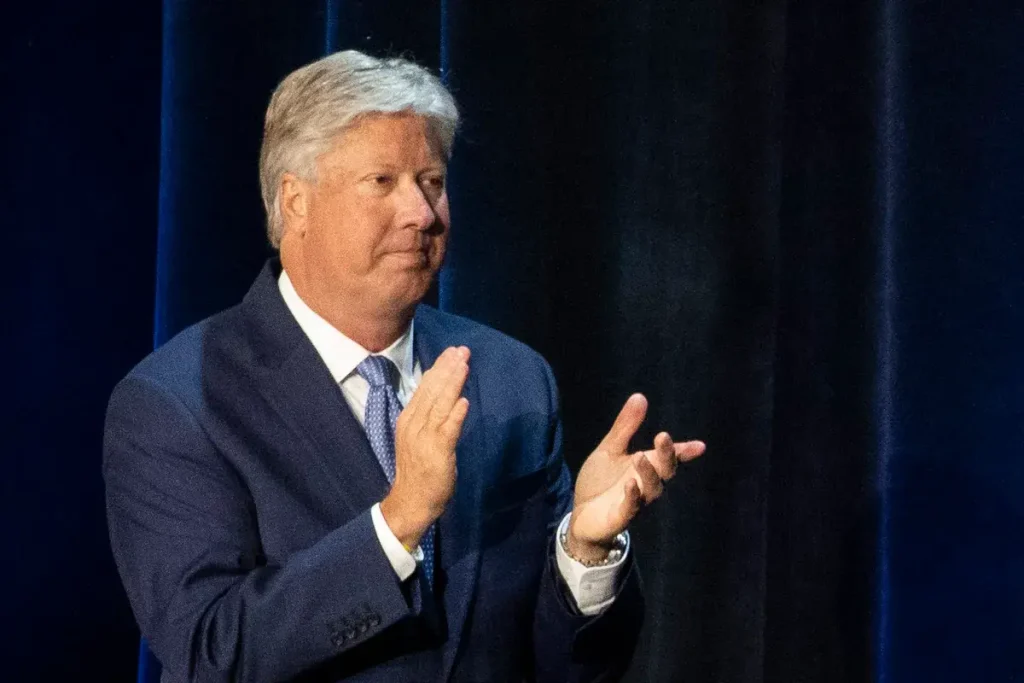Controversial Sentence Sparks Public Outrage in Sexual Abuse Case Involving Prominent Pastor
A wave of public indignation has swept across social media platforms following the sentencing of Robert Morris, the 64-year-old founder of Texas-based Gateway Church. Morris, who once served on President Donald Trump’s Evangelical Advisory Board in 2016, received what many consider a lenient punishment after pleading guilty to five felony counts of lewd or indecent acts with a child. The case centers around incidents from the 1980s involving a then 12-year-old girl, now identified as 55-year-old Cindy Clemishire, who was present in the courtroom as Morris admitted to the abuse. Despite the severity of these charges, Morris will serve only six months in jail as part of a plea agreement that includes a 10-year suspended sentence, $250,000 in restitution, and registration as a sex offender.
The stark contrast between the gravity of Morris’s admitted crimes and the brevity of his incarceration has become a focal point of criticism. Many voices have emerged questioning the justice system’s handling of abuse cases, particularly when the perpetrator holds a position of power and influence. Christian author Jennifer Greenberg, herself a survivor of abuse, articulated the frustration felt by many when she questioned on social media why such a plea deal was offered and expressed concern about how quickly Morris might be welcomed back into church leadership. Similarly, the political group Republicans Against Trump highlighted the case on their platform, emphasizing Morris’s former connections to the former president alongside the details of his conviction and sentence.
This case touches on several sensitive intersections in American society—the accountability of religious leaders, the protection of children, and the adequacy of our legal system in addressing historical abuse claims. Gateway Church has grown into a multi-site megachurch under Morris’s leadership, drawing thousands of worshippers across Texas and building his profile as a significant figure in evangelical Christianity. The revelation of his crimes has therefore sent shockwaves through both religious communities and broader society, forcing difficult conversations about trust, power, and forgiveness in institutional contexts. For Clemishire, her presence in the courtroom represented the culmination of decades of silence and the complex journey toward justice that many abuse survivors face.
The societal response to this sentencing reflects evolving attitudes toward sexual abuse cases, particularly those involving minors. Historical cases often present unique challenges for prosecutors, as evidence may be limited and memories faded, yet the impact on survivors remains profound throughout their lives. The $250,000 restitution ordered in this case acknowledges the financial aspect of redress, but many observers question whether any monetary amount can adequately address the lifelong psychological and emotional consequences of childhood sexual abuse. The requirement for Morris to register as a sex offender provides some ongoing accountability, but critics argue that the brief incarceration period fails to reflect the seriousness with which society claims to view such violations.
Religious communities now face the difficult task of processing this revelation about a once-trusted leader. The case raises important questions about how churches vet their leadership, respond to abuse allegations, and support survivors within their congregations. Greenberg’s concern about premature forgiveness highlights the tendency some religious institutions have shown to prioritize rehabilitation of offenders over justice for victims, sometimes enabling continued access to vulnerable populations. This tension between forgiveness as a religious value and accountability as a societal necessity creates complex dynamics in how faith communities respond to revealed abuse. For Gateway Church specifically, this represents a profound challenge to their institutional identity and values as they navigate the aftermath of their founder’s confession.
As this story continues to develop, it joins a broader national conversation about power, accountability, and justice. The disparity between Morris’s influence as the leader of a megachurch and spiritual advisor to a president, and the relatively minor consequences he faces for crimes against a child, strikes many as emblematic of deeper systemic issues. For Clemishire and countless other survivors watching this case unfold, the outcome sends a powerful message about how society values their experiences and rights. While Morris’s guilty plea spares his victim the additional trauma of a trial, the sentence has left many questioning whether justice has truly been served. This case, like many before it, demonstrates the ongoing struggle to align our legal outcomes with our proclaimed values regarding the protection of children and the accountability of those who harm them, regardless of their status or position.














